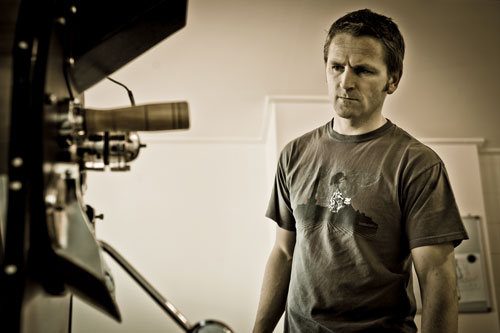Ready, willing and able
The Be. Employed initiative aims to educate employers on the real value access (disabled) employees can add to businesses. Be. Institute CEO Minnie Baragwanath shares how they’re waging war on mindsets.
The Be. Employed initiative aims to educate employers on the real value access (disabled) employees can add to their businesses. NZBusiness caught up with Be. Institute CEO and social change advocate Minnie Baragwanath to learn how they’re waging war on mindsets.
New Zealand justifiably prides itself as a world leader when it comes to groundbreaking social legislation and human rights initiatives; yet there is one aspect of the employment landscape that still requires some major worxk. If you’re an employer or the owner manager of a business, large or small, you have the power to address the situation.
But it does require some new thinking.
The hard fact is that around 20 percent of New Zealanders have a disability or impairment of some kind, and of those, 60 percent are unemployed even though 75 percent don’t require any extra support to work. Unfortunately it’s a stat that hasn’t improved over the years and we’re only marginally ahead of the Australians.
In short, it’s an enormous waste of resource and a barrier to productivity for businesses.
It’s been a long time coming, but at last there is a major initiative under way designed to tackle the issue head-on. To learn more about it NZBusiness sat down with Minnie Baragwanath, CEO of Be. Institute, the organisation behind Be. Accessible – a social enterprise that merged with the Employers Disability Network late last year to launch a major new employment initiative called Be. Employed. She’s excited about the “huge opportunity” to make a difference.
Be. Employed is all about changing mindsets; making businesses more open to access employees. (Access employees may include those living with temporary or permanent disability, which can range from paralysis to dyslexia, blindness or deafness, people who use wheelchairs and those living with temporary injury or illness.)
“There are still a lot of mindsets to be changed and part of the challenge is that there’s a common misconception that employees with access needs require more effort or are more costly to employ – when in fact three-quarters don’t need any extra support. The first step is opening it up to frank discussion so any misconceptions can finally be put to rest,” says Baragwanath.
“We’re firm believers that many small actions create big change and we expect that Be. Employed will help organisations to identify, spark and amplify those changes. Mindset change isn’t going to happen overnight, but with education, guidance and resilience, it’s inevitable,” she adds.
While Be. Employed’s current private company clients include organisations the size of ANZ Bank, AUT University and Fletcher Building, this initiative is aimed at businesses and organisations of any size.
“For real change to happen, we really need to approach it from all sides,” explains Baragwanath.
“In some cases it may even be much easier for smaller businesses to incorporate access solutions. In December we launched an adaptation of our Be. Welcome programme specifically designed with small businesses in mind: a self-assessment tool that gives tips and ideas for optimising accessibility to business premises and marketing material.”
Baragwanath wants to shatter once and for all those myths and misconceptions that have surrounded the issue of employing people with disabilities or impairments. Most, if not all, are misguided.
“By making a business totally accessible employers could increase their potential talent pool by 20 percent, strengthening their reputation by appealing to access customers – and potentially improving their customer base by catering to everyone,” she says. “So see accessibility as an investment, not a hindrance.”
According to Be. Accessible, the access customer group is one of the fastest growing consumer groups in New Zealand and includes disabled people, senior citizens, people with a temporary disability through accident and illness, parents with strollers and even travellers with heavy bags.
“In Auckland, for example, there are some 170 cruise ships due to visit this year and on board are mostly baby boomers. If I was a Queen Street retailer I’d be making my store as physically accessible as possible and encouraging a culture of making these people feel welcome and valued. That will translate into more sales.”
Baragwanath reminds us that one in five people in New Zealand have a disability of some kind – that’s 20 percent of your customer base. “Our ageing population means that never before have there been so many age-related impairments,” she says. “50 percent of New Zealanders over the age of 65 have at least one impairment.”
“Employers often think that access employees will be more costly to employ – whether it’s in requiring expensive equipment, taking more sick leave or needing more training to do the job. Which is simply not true,” says Baragwanath.
Should any equipment purchases or facilities upgrades be required they can be funded through external parties, she says. Workbridge, for example will fund up to $15,000. “It’s just a matter of knowing who to approach.
“Studies show that access employees take the same or fewer days off than their colleagues; They’re flexible, adaptable, loyal, and are often well educated with great problem solving and leadership skills.
“For employers, a lot of it is just not knowing what they don’t know. It’s unfamiliar territory, so the perception can be that being accessible is hard. When in fact, it’s not.”
Purpose driven
Mention the word ‘disabled’ or ‘impairment’ and many employers put up barriers; they immediately think ‘expensive’ or ‘too hard’ – but for so many access employees, that ‘disability’ or ‘impairment’ is barely noticeable. Baragwanath is a good case in point. “I have a rare eye condition called Stargardt and am considered legally blind. Having been labeled a disabled person since my early teens, I developed a real passion for wanting to make the world a more accessible place. I personally struggled to find meaningful work for many years despite being very well qualified. I believe virtually all New Zealanders want to work and gain enormous value from working – not just financially. Having a sense of purpose, meaning, and a way to contribute to the world is essential for us all.”
There have already been some successes. Westpac, for example, is doing great things in terms of accessibility, says Baragwanath. “They see that reflecting their customer base is both a social good and makes commercial sense. They’re striving to become the first totally accessible bank in New Zealand.”
She’s keen to grow a network of organisations committed to access employment and start celebrating the success stories.
Baragwanath’s plea to business owners is to just give it a go. “Open your mind to the pluses and possibilities that these talented people can bring to your business. Think about the impact it will have on the team culture in your business. Customers will see that, and so there will be benefits to the bottom line as well.”
Creating that culture of accessibility within your business can be a straight forward process, she says. Just ask for help – her organisation is ready, willing and able to provide it.
To get involved in the Be. Employed programme and become an accessible employer check out the Join Be. Employed page at www.beaccessible.org.nz/be-employed/join-be.-employed or phone 0800 be in touch (234 686).
Signs of accessibility
When Wellington’s CQ Hotels trained up around 12 of its employees in New Zealand Sign Language (NZSL) last year, the experience was described as extraordinary.
“CQ Hotels Wellington was one of the first hotels in New Zealand to teach NZSL to its team and we are very proud of it,” says general manager Olivier Lacoua. “It was great team bonding and now our team is comfortable interacting with all our guests. We have received lots of compliments and positive feedback for this initiative.”
Accessibility initiatives undertaken by the hotel include a Be. Welcome Pack; large-letter keyboards on their public Internet PCs; vibrating pillows connected to the fire alarm; Braille menus; employing a disabled person to assist around the hotel; installing shower chairs and ‘Evac Chairs’ and training staff on how to evacuate disabled guests in an emergency.
The hotel is also a category sponsor in the Big A Awards (which seeks to reward people with disabilities in the arts), and has appointed a Be. Accessible Champion “who assists management in prioritising new and improved features or services for the benefit of disabled guests”.



